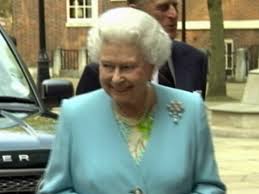Remembering Queen Elizabeth: Her Legacy and Impact

Introduction
Queen Elizabeth II, who reigned for more than 70 years, is known for her unparalleled dedication to her country and the Commonwealth. Following her passing on September 8, 2022, her legacy has continued to resonate in the hearts of many. The significance of her reign lays not only in its duration but also in the various historical events she witnessed and navigated during her time on the throne. In recent months, her legacy has been further explored, drawing attention to her impact on the monarchy and society.
Events Following Queen Elizabeth’s Passing
Since Queen Elizabeth’s death, numerous tributes have flooded in from around the world, reflecting her far-reaching influence. Notably, on April 21, 2023, celebrations were held to mark what would have been her 97th birthday, with floral tributes placed at royal residences, and moments of silence observed across the UK. Furthermore, discussions regarding her impact on modern monarchy have gained traction, especially with the ongoing evolution of the royal family under King Charles III.
The Royal Family’s Adaptation
As the royal family adapts to a new era without their matriarch, the focus has shifted to how her values of service, commitment, and duty continue to inspire the monarchy. King Charles III has expressed intentions to honour his mother’s legacy and has implemented a vision that includes a more modern and accessible royal family. This adaptation has been essential for maintaining public interest and relevance in contemporary society, especially amongst younger generations.
Queen Elizabeth’s Global Impact
Queen Elizabeth II was not only a symbol of stability within the UK but also a diplomatic figure globally. Her interactions with numerous world leaders and participation in state visits have fostered international relations. In recent discussions, historians and political analysts examine how her reign influenced global attitudes toward the monarchy and leadership in general, opening conversations about leadership qualities in a democratic context.
Conclusion
In conclusion, Queen Elizabeth II’s legacy extends beyond her years on the throne; it influences how we perceive leadership, duty, and resilience in times of change. As royal commentators and historians continue to reflect on her impact, it becomes increasingly clear that her contributions will shape the future of the British monarchy for generations to come. The ongoing adjustments within the royal family point towards a continuing evolution influenced by her guiding principles, further solidifying her significance in history.









